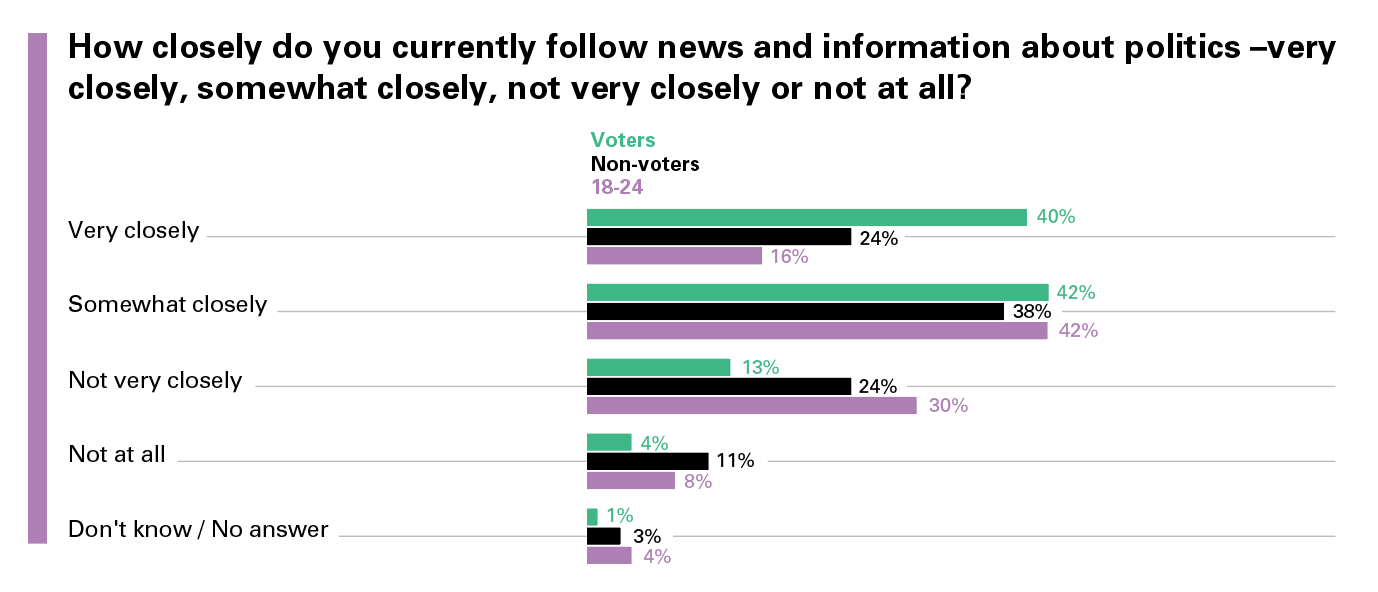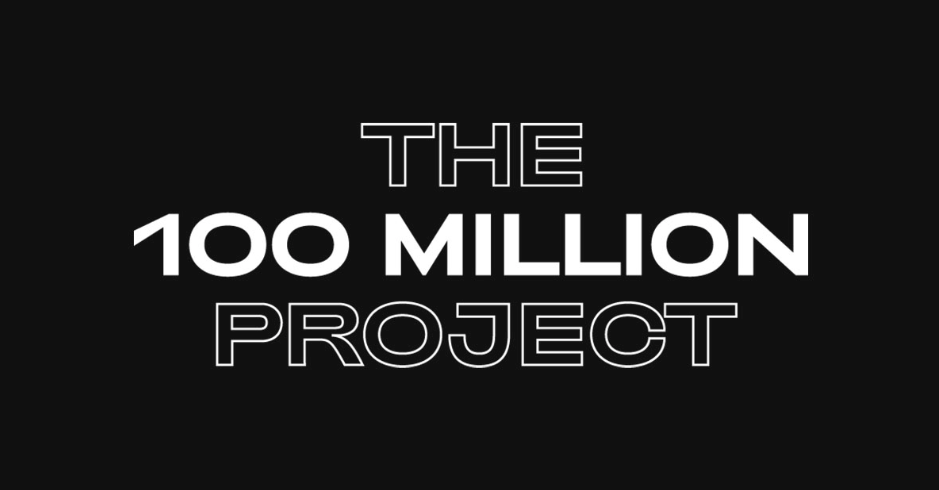
Landmark study reveals opportunities to engage nearly 100 million Americans who don’t vote
On February 19, 2020, Knight Foundation released a new study that sheds light on the 100 million Americans who don’t vote, their political views and what they think about the 2020 election. Knight’s Evette Alexander shares more below. View the report website, the full report and the full press release for more information.
We’re well into campaign season in what could be one of the most divisive elections in living memory. While the polls and pundits focus on likely voters, who reliably cast ballots, nearly 100 million non-voters — and the underlying causes keeping them home on Election Day — will likely be ignored.
Americans who do turn out will drive the election result, but so much of the underlying health of our democracy can be assessed by looking at those who don’t turn out — and asking why.
That’s why Knight Foundation commissioned Bendixen and Amandi International to develop an unprecedented study of 12,000 chronic non-voters, nationwide and in key battleground states. No previous study has surveyed this segment of the electorate at such depth and scale. Knight is focused on ensuring the enduring strength of our representative democracy. And a truly representative democracy is just that: one defined by the broad and representative participation of its people.
Voting is a fundamental form of democratic engagement, but the United States lags behind most of the world’s 36 developed democracies in terms of voter turnout. It’s a long running trend, according to U.S. Census Bureau data, that active voters over-represent certain groups (the college educated, upper income and over 40) and under-represent others. This has ramifications on the capacity of our elected government to mirror the values of its entire citizenry.

This study serves to illuminate key voter participation challenges that might need to be addressed if disengaged voters are to be enticed back to the polls. While non-voters give many reasons for not turning out, survey data from the Knight-sponsored study reveal beliefs and behaviors that set them most apart from active voters:
- Lower trust in the election system and doubt about the impact of their own votes. Thirty-eight percent are not confident that the elections represent the will of the people.
- Lower engagement with news and information, particularly about politics. They are half as likely to intentionally seek out news and information, and more reliant on “bumping” into it as they go about their day.
- Lower civic engagement overall, and a lower satisfaction with their personal life. They are somewhat less likely to contribute time and money to non-profits in their community.
These differences persist across demographic differences such as education and income, drawing attention to their importance.

At the heart of Knight’s work is also a focus on an informed citizenry, and the role information plays in enabling and sparking the practice of democracy. This, too, is a key factor in influencing non-voters. One of the clearest findings of the study is that non-voters feel – and are –underinformed on political issues. Compared with active voters, non-voter media diets involve less traditional news and more entertainment, and these individuals were less likely to grow up in a family that discussed current events together.
Come election time, perhaps it’s not surprising that non-voters are twice as likely as voters to say they don’t have enough information about candidates and issues to make a decision. Because non-voters are less likely to have strong party loyalties, their perceived decision-making burden may be higher. In focus groups, many non-voters expressed a firm belief that an uninformed vote would do more harm than good.

Even more concerning, findings indicate that these trends could more starkly define our likely future. The study’s additional survey of eligible voters aged 18 to 24 years old found they are less informed, less interested in politics and less likely to vote in 2020 than non-voters themselves.

A deeper understanding of non-voter views around politics and participation should serve as critical context for those seeking to reach and motivate the disengaged electorate. Findings point to the need for greater education and transparency around electoral systems. Non-voters need to know how decisions made by elected officials impact their lives, why their civic engagement locally and nationally matters and where to find easy access to trusted information about candidates and issues.
The Knight-commissioned “The 100 Million Project: The Untold Story of American Non-Voters,” helps dispel outdated assumptions about non-voters. These are our fellow citizens, and they come from every walk of life. But there are some factors that unite them. In bringing to life this diverse group, the report provides insights that can support new ways to energize a new generation of engaged citizens — all in the service of our democracy.
Evette Alexander is a director of learning and impact at Knight Foundation. You can follow her on Twitter at @evettewashere.
View our interactive report
The 100 Million Project
The Untold Story of American Non-Voters Executive Summary In 2016, nearly 100 million eligible Americans did not cast a vote for president, representing 43% of the eligible voting-age population. They represent a sizeable minority whose voice is not heard in our representative democracy. Most of our attention, in politics and in research, tends to fall […]
New study sheds light on the 100 million Americans who don’t vote, their political views and what they think about 2020
Knight Foundation releases unprecedented survey of 12,000 non-voters, examining their political attitudes and behavior, including how they encounter information about politics and elections WASHINGTON — February 19, 2020 — As primary season heats up and voters cast their ballots during this presidential election year, the largest bloc of the electorate is a group of Americans […]
Elections and Voting
At Knight Foundation we see engagement in the democratic process as more than just the act of voting. It should be embedded in every part of civic life, extending before and after an election. It is a chance for people to become and remain involved in their communities and to have a voice in local, state and national issues.
The John S. and James L. Knight Foundation published this piece as part of the 100 Million project. The Foundation does not endorse any political party or candidate. It supports all efforts to educate non-voting Americans about the issues facing their communities and the nation and exercise the right to vote for candidates and initiatives of their choice.



